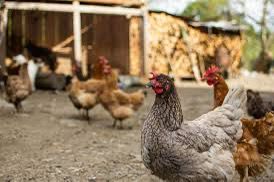Zimbabwean philosopher Joshua Maponga criticised Swapo during a recent discussion on their manifesto, questioning why the party has failed to address critical issues since independence.
Invited as a guest speaker, Maponga condemned the ruling party for maintaining outdated policies and structures inherited from colonialism, accusing them of neglecting land reform and economic transformation.
“The redline remains a symbol of our stagnation, even as we speak today, we still have the redline zones in Namibia where goods cannot move freely. In a country, we call a country, but you cannot cross over with beef. You cannot cross this line. And you sit back and say who drew this line? A bunch of burros and German guys who said no, if you allow goods from the north to come down here then the businesses of the south will die,” he said.
Maponga argued that since gaining independence, Swapo has inherited a system it has not transformed.
“We came back with presidents when we went to war with kings, but nothing has changed. Ministers of health, education, and water continue to manage the same colonial structures,” he said.
He also challenged the necessity of multiple ministries advocating a singular focus on land as the root of all other issues.
“There is only one ministry, the ministry of land, because everything stems from it: agriculture, water, housing, infrastructure, even mining,” he said.
Recently, The Namibian reported on agriculture, water and land reform minister Calle Schlettwein who said his ministry will not withdraw from the ongoing High Court case seeking the complete removal of the 128-year-old redline.
The court case was initiated against the government by activist Job Amupanda in 2021, after veterinary officials at the Oshivelo Veterinary Checkpoint allegedly confiscated meat from him.
Schlettwein’s comments came after deputy information minister Modestus Amutse on Thursday announced that Schlettwein submitted a proposal to Cabinet recently for the gradual removal of the redline.
The veterinary cordon fence, established in 1896, separates communal farms in northern and north-eastern Namibia, the Omaheke region and part of the Oshikoto and Khomas regions from commercial farming areas in the south.
Stay informed with The Namibian – your source for credible journalism. Get in-depth reporting and opinions for
only N$85 a month. Invest in journalism, invest in democracy –
Subscribe Now!






